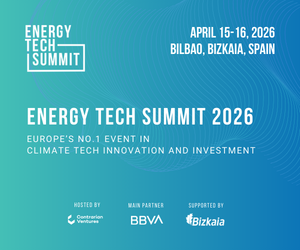Post - Blog

By Stuart Murphy, Founder & Inventor, TPGen24

Energy Tech Summit 2026
COP 26 is imminent, and has been much trailed by Ministers from across the world making big claims around climate, particularly the promise of strong green policy.
No doubt all this will be accompanied by professional and personal commitment after commitment to do better by the ecosystem. However, such concern sits uncomfortably alongside our insatiable appetite for a never-ending stream of cheap electricity.
On the current trajectory, our renewables supply cannot keep pace (as evidenced by the last seven weeks). This means that, for all the talk in the UK about EVs, gas boiler scrappage, smart homes and hydrogen capture, we’ll still be falling back on gas, nuclear and imported electricity from ambiguous sources.
It’s a far from ideal situation, and something needs to be done now if we want to continue living the data-driven lives we’ve become accustomed to, whilst simultaneously halting and reversing climate change.
We’ve made great steps in the renewables sector to date; it’s great to see offshore wind become a sustainable business success story. It’s also encouraging to see major advancements in solar capabilities. However, both remain inherently beholden to precise meteorological conditions, and as such, they are intermittent. Fundamentally, if the sun doesn’t shine and the wind doesn’t blow, they cannot generate any energy. This presents a huge problem as we look to phase-out fossil fuel, become energy self-sufficient and satisfy society’s constant energy demands all at once.
We need a holistic strategy, one that actually explores every viable option available to create a strong and resilient mix, with the capacity to handle mass decarbonisation and digital adoption. The UK government’s current vision is painfully narrow, with all its eggs placed in one basket.
For example, there is a rapidly growing tidal renewables market but, surprisingly for an island surrounded by some of the world’s best tidal ranges, our policy makers seem reluctant to explore them. This has to change soon, as these woefully under-explored resources have the potential to help cleanly deliver the essential versatility, flexibility and capacity to complement and support solar and wind, when they cannot deliver and replace gas and coal.
These problems, and the current lack of impetus to overcome them, have led to the development of TPGen24. It’s a tidal triple lagoon-based system designed to remove the intermittency problem and deliver base load electricity (the minimum level of demand on an electrical grid) even in times when these weather/sunshine-dependent systems cannot. Further, it generates clean energy 24/7, 365 days a year, making it a powerful proposition even at development stage.
Hopefully such work around tidal will encourage others to follow suit, whether it’s further exploring systems that harness this natural resource or other green alternatives. This is a collaborative process and we need multiple solutions, as there’s no single fix to the above challenges.
If we’re going to get really serious about our ambitions for a clean, green high-tech society then we need to establish a playing field where entrepreneurs feel supported. Currently it feels like short term convenience is trumping long term ambition, hindering essential innovation in this field.
What’s abundantly clear, is that, next week, our leaders need to take a long hard look at the current energy mix and see how it relates ten, 50, 100 years down the line.
No doubt they will find it distinctly lacking. The fact is, electricity consumption will exponentially increase over the next decade and we need to be prepared with a green energy infrastructure that can deliver.
As we can see, the answers are there, we just need to get serious about investing in them, particularly if we want to avoid climate catastrophe. After all… there’s no Planet B.
